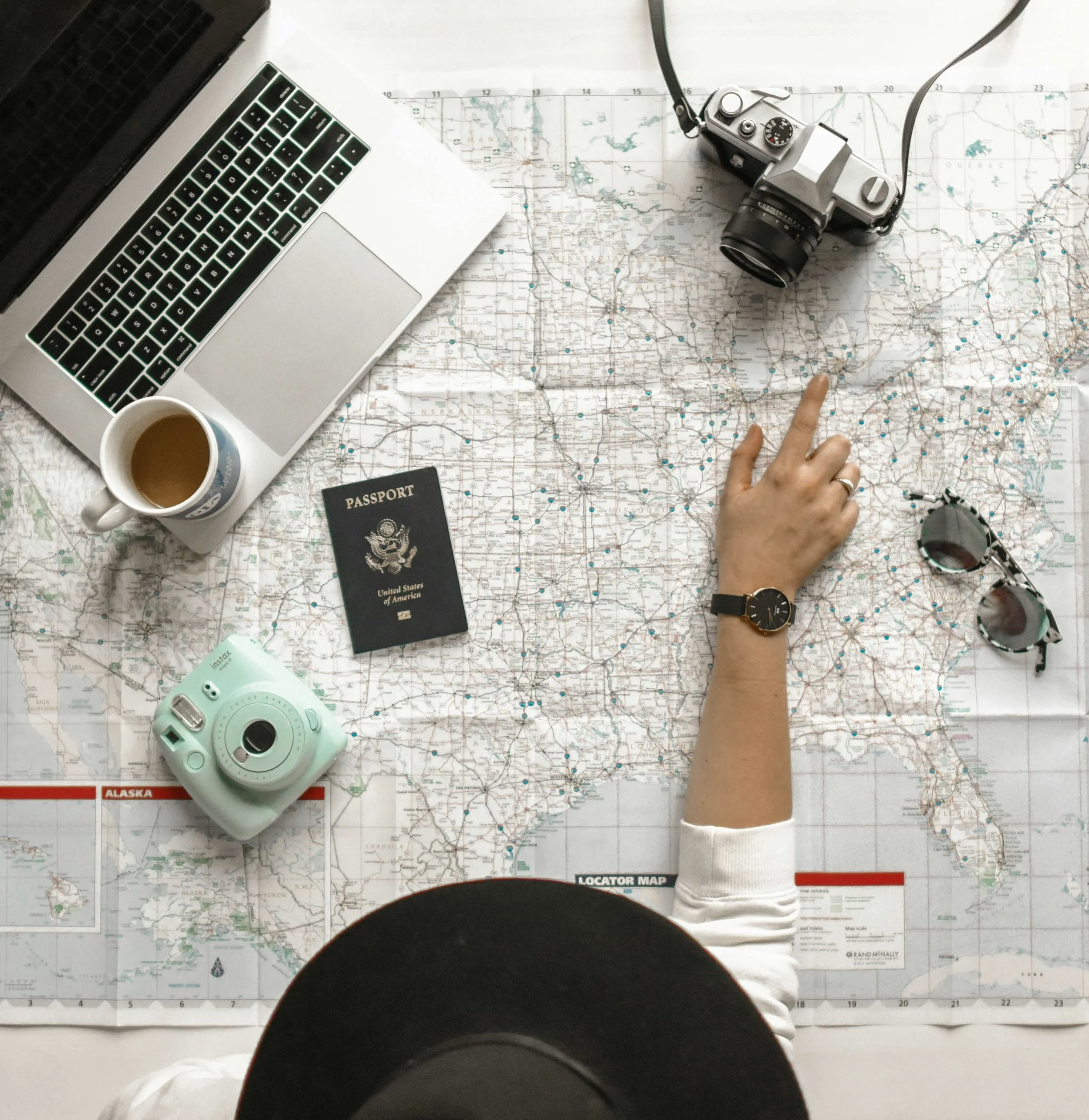Enhancing Cultural Competency: Essential Tools for International Travel
Estimated Reading Time: 6 Minutes Traveling to new and unfamiliar cultures is an enriching experience that broadens our perspectives and fosters intercultural understanding. However, navigating cultural differences can be challenging without the right tools and knowledge. In this guide, we'll explore the best cultural competency tools for international travel, equipping you with the skills and insights needed to navigate diverse cultural landscapes with respect, sensitivity, and openness.
Key Takeaways (TL;DR):
- Learn Important Phrases: Basic greetings and polite requests in the local language foster goodwill and ease daily interactions.
- Research Before You Go: Understanding cultural norms, social customs, and taboos helps navigate social interactions respectfully.
- Respect Differences: Approach interactions with empathy and open-mindedness to appreciate cultural diversity.
- Embrace Authenticity: Adapt to local customs and traditions, avoiding imposing your own cultural norms.
- Be Aware of Customs Laws and Traditions: Familiarize yourself with local laws and cultural practices to avoid legal issues and show respect.
By using these tools, travelers can enhance their cultural competency, fostering meaningful connections and enriching their travel experiences.
Learn Important Phrases: Communication is Key
One of the most valuable cultural competency tools for international travel is learning important phrases in the local language. Even basic greetings, expressions of gratitude, and polite requests can go a long way in fostering goodwill and bridging language barriers. Consider investing time in learning phrases such as:
Hello and goodbye
Please and thank you
Excuse me and I'm sorry
Where is the bathroom?
How much does this cost?
Can you help me?
Learning these phrases not only demonstrates respect for the local culture but also enhances your ability to navigate daily interactions and situations with ease and confidence.
Research Before You Go: Understand Cultural Norms and Customs
Before embarking on your international travels, take the time to research the culture, customs, and etiquette of the countries you'll be visiting. Consider the following:
Cultural Norms - Familiarize yourself with cultural norms related to greetings, gestures, personal space, and communication styles, as these may vary significantly from one country to another.
Social Customs - Learn about social customs such as dining etiquette, gift-giving practices, and dress codes, and adhere to local customs and traditions to show respect for the host culture.
Taboos and Sensitivities - Be aware of topics, behaviors, or actions that may be considered taboo or offensive in the local culture, and exercise sensitivity and discretion in your interactions with others.
By arming yourself with knowledge about the cultural context of your destination, you can navigate social interactions with respect and awareness, minimizing the risk of unintentional misunderstandings or faux pas.
Respect Differences: Embrace Diversity and Inclusion
Cultural competency is about recognizing and respecting the diversity of human experiences, perspectives, and identities. When traveling internationally, it's essential to approach interactions with humility, empathy, and an open mind, embracing the richness of cultural diversity and fostering inclusivity. Here are some tips for respecting differences:
Listen Actively - Take the time to listen to and learn from people whose backgrounds, beliefs, and experiences differ from your own, recognizing the value of diverse perspectives and viewpoints.
Practice Empathy - Put yourself in the shoes of others and seek to understand their cultural context, values, and priorities, fostering empathy and compassion in your interactions.
Be Open-Minded - Remain open to new experiences, ideas, and ways of thinking, challenging your assumptions and biases, and embracing the opportunity to broaden your horizons.
By cultivating a mindset of respect, empathy, and openness, you can foster positive and meaningful connections with people from diverse cultural backgrounds, enriching your travel experiences and fostering mutual understanding and appreciation.
Don't Try to Turn the Country You're Visiting into Your Home Country: Embrace Authenticity
One of the keys to cultural competency in international travel is embracing authenticity and resisting the urge to impose your own cultural norms and expectations onto the country you're visiting. Instead, strive to immerse yourself fully in the local culture, embracing the uniqueness and authenticity of your destination. Here are some ways to avoid cultural imposition:
Be a Respectful Guest - Approach your travels with humility and respect, acknowledging that you are a guest in someone else's country and culture, and strive to adapt to local customs and traditions.
Embrace Cultural Differences - Celebrate the diversity of human cultures and appreciate the beauty of cultural differences, rather than seeking to impose your own cultural norms or values onto others.
Learn from Locals - Take the opportunity to learn from locals about their culture, traditions, and way of life, and approach cultural exchange with curiosity, openness, and respect.
By embracing authenticity and honoring the uniqueness of each destination, you can forge deeper connections with the local culture and people, enriching your travel experiences and fostering mutual respect and understanding.
Be Aware of Customs Laws and Traditions: Navigate Legal and Cultural Boundaries
When traveling internationally, it's essential to familiarize yourself with customs laws, regulations, and traditions to ensure compliance and avoid inadvertently violating local norms or laws. Consider the following:
Customs Regulations - Research customs regulations related to importing and exporting goods, including restrictions on items such as alcohol, tobacco, currency, and souvenirs, to avoid legal issues or confiscation at customs checkpoints.
Cultural Traditions - Learn about cultural traditions and practices related to greetings, gestures, and social customs, and adhere to local norms and expectations to show respect for the host culture.
Legal Considerations - Familiarize yourself with local laws and regulations governing behavior, attire, photography, and public conduct, and exercise caution to avoid inadvertently violating legal or cultural boundaries (you don’t want to be locked up at all—but let alone abroad).
By staying informed about customs laws and traditions, you can navigate international travel with confidence, ensuring a smooth and enjoyable experience while demonstrating respect for the laws and cultural norms of your destination.
Final Thoughts
Cultural competency is a valuable skill for international travelers, enabling them to navigate diverse cultural landscapes with respect, sensitivity, and openness. By learning important phrases, researching before you go, respecting differences, embracing authenticity, and being aware of customs, laws, and traditions, you can enhance your travel experiences and foster meaningful connections with people from around the world. Remember to approach your travels with humility, empathy, and an open mind, embracing the opportunity to learn, grow, and celebrate the richness of human diversity.








Mexico is a country that enchants visitors with its vibrant culture, rich history, and stunning natural beauty. From the bustling streets of Mexico City to the serene beaches of Cancun, Mexico offers a diverse range of experiences for every traveler. In this blog post, we'll explore why Mexico is an appealing travel destination, highlighting its key cities and regions.